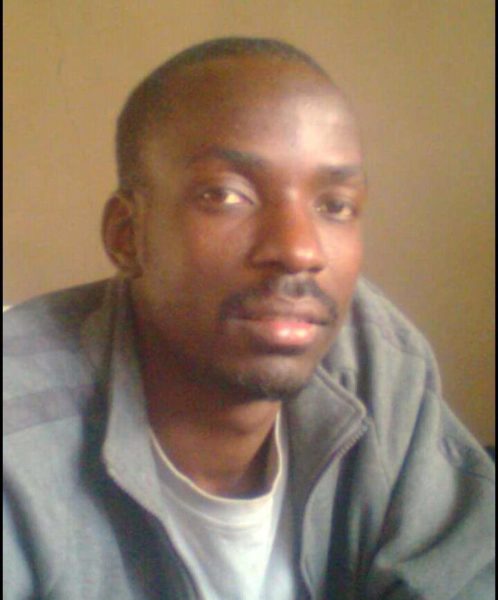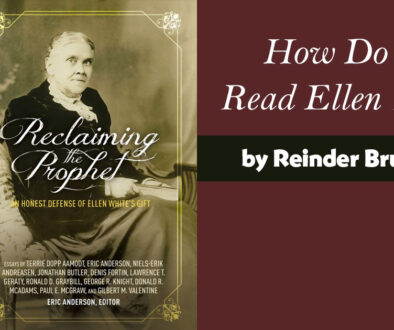The African Concept of Personhood, Community and Responsibility
By Arthur Sibanda | 2 November 2021 |
Ubuntu is a Nguni Bantu term meaning, literally, “humanity.” But it has a broader understanding. It can be read as ”I am because we are,” or ”humanity towards others”—that is to say, a belief in a universal bond that connects us all.
I believe that the traditional spiritual principle of ubuntu (or unhu in Shona languages) fits neatly with the foundational tenets of Christianity.
Ubuntu as God’s image
Creation accounts differ from culture to culture, yet all begin with the notion of a Divine origin of humanity. Our African ancestors were keen observers of reality and nature. They had a rich religious perspective too. Southern African communities trace their beginnings to a creation event where the ”Umdali” (literally, the one who can create) or ”Mwari” (the Supreme Being) made the first humans. It is from their understanding of a Divine creation that African communities developed the philosophy and principle of ubuntu—a recognition of the higher level of the life of human beings, in contrast to other creatures or lower life forms.
Ubuntu recognizes that humans are endowed with a higher level of existence than other creatures. We have an inherent uniqueness, which in the ubuntu philosophy could be translated as ”personhood”. Personhood is not merely personality—we may reasonably argue that donkeys, monkeys and dolphins have personalities too. Ubuntu personhood is the recognition that one needs to behave in the best interest of the human race, to which he or she is existentially accountable. We exist together and we are part of each other. We are also part of this larger world beneath us: the creatures and environment that God made us responsible for (Genesis 1:28).
This harmonizes perfectly with humanity being created in God’s image (Genesis 1:26-28) and being given oversight of the world. Ubuntu can be understood as Africans’ recognition of the image of God in humanity, which reflects the essence of God’s nature and character.
Ubuntu and community
Ubuntu goes beyond individual personhood, though, to a sense of our collective personality and identity. If we have the same God-modeled personhood, then we share a common existence and interconnectedness. Humanity exists as a complete system, more like a living organism composed of different components or body parts (1 Corinthians 12:12-26).
In Africa this concept is enshrined in the psychology of African community life. The foundational existential questions (Who am I? Where do I come from? Where am I going? What should be doing now?) find meaning and fulfillment in the realization that we share common origins from the Supreme Being’s hands. We find meaning, purpose, fulfillment and direction as we understand that we exist together and for one another.
Evolution with its ”survival of the fittest” principle is at variance with ubuntu. Evolution ascribes our existence to chance. Here, humans are merely advanced primates. From this malignant philosophy emanates racism, sexism, capitalism and all other isms that encourage self-centeredness, selfishness and exploitation.
Ubuntu and love
I believe this African philosophy fits hand in glove with the state of existence before sin emerged. “Whoever does not love does not know God, for God is love” says John (1 John 4:8). In the Bible the Supreme Being is the source and epitome of love. He does not exist for Himself, for love by nature is not self-seeking (1 Corinthians 13:4,5). The hallmark of God is giving of His essence to sustain all that which exists.
At the beginning, before sin emerged, there existed a continuous flow of love from the Supreme Being’s heart flowing to all that He created, and returning from His creation back to Him. This, too, is ubuntu: everything exists as part of the larger whole, intricately connected to others through the principle of self-sacrificing love.
As long as this was maintained, there was tranquility and equilibrium. The participation by each individual to maintain ubuntu was voluntary, because for ubuntu to exist there has to be free will. Ubuntu participation cannot be commanded or forced (2 Corinthians 3:17).
The Bible describes how ubuntu was disrupted. One of God’s angels chose to live selfishly. Instead of participating in this system, Lucifer chose to oppose it. This angel used deception and lies to convince other angelic beings to think that living as a community of love was part of the Supreme Being’s plan to enslave them and prevent them from asserting their personal growth and development. Lucifer caused other angelic beings to look at God as an arbitrary, vengeful, unforgiving—severe, celestial monster who would use ubuntu to maintain and exploit His creation. Some of those beings rebelled against the Supreme Being.
Ubuntu, freedom, and selfishness
Interestingly, they could rebel against the Supreme Being because ubuntu cannot rely on coercive measures to foster compliance. Each individual has to rely on an inner ubuntu to contribute to the greater good of society, as they recognize they are part of the system; they must be willing participants (Ezekiel 28:1-19; Isaiah 14:12-20; Revelation 12:3-4,7-9)
Lucifer and the angels he deceived left God’s immediate presence—heaven—and attempted to destroy God’s ubuntu wherever they went. They won over the first human couple by misrepresenting God’s character and His method of governance. Adam and Eve believed Satan’s lies about God’s existence, and the infection of sin was encoded into the human genome (Genesis 3:1-7, Romans 3:23).
This infection brought selfishness, self-centeredness and self-destruction to humanity. Every human hence has been born with this infection. It permeates and corrupts every human mind (Jeremiah 17:9, Romans 6:23). We no longer naturally want to participate in ubuntu—we want to run rogue, to respond to our hedonistic and animalistic instincts, to live for self even when it means others will be harmed by our actions. Our nature secretly yearns to be let loose and fully express all our urges and fantasies. Some call this “the law of the jungle.”
This is the opposite of ubuntu. It is a life of explosive id-driven behaviour which emanates from a corrupted heart (Matthew 15:19; Acts 28:27).
Restoring ubuntu
Without ubuntu this world degenerates into chaotic self-destruction. History is witness to the depravity of human existence, wars, slavery, colonization and exploitation of one another. While nations converge in forums and gatherings to address inequality and set Millennium Development Goals, political will is not strong enough to save humanity as long as humanity won’t live in sync with God’s principle of self-sacrificing ubuntu.
Untamed capitalism is not sustainable, but neither can we force every member of the community to contribute to the greater common good (my understanding of communism). We need an actual change of heart, recognizing that we have to go back to living according to God’s original ubuntu.
This is where Christianity helps to change and transform our lives (Romans 12:2, 2 Corinthians 3:18, 2 Corinthians 5:17).
Christians should be the people who model living as the Supreme Being designed us to. The Gospel is a message about how God is restoring humanity back to ubuntu. This restoration is progressive—the true Gospel which Africans and the rest of the world should embrace.
It will reach its culmination when the Supreme Being at last removes the infection of sin forever, and restores all of us to a state of perfect ubuntu (Revelation 21:1-5).
 Arthur Sibanda is a mental health nurse in Victoria Falls, Zimbabwe. He and his wife, Mercy, have one daughter, Nobukhosi Tashanta. He enjoys writing, composing songs, and singing, and is also involved in a ministry helping people overcome sexual brokenness.
Arthur Sibanda is a mental health nurse in Victoria Falls, Zimbabwe. He and his wife, Mercy, have one daughter, Nobukhosi Tashanta. He enjoys writing, composing songs, and singing, and is also involved in a ministry helping people overcome sexual brokenness.




